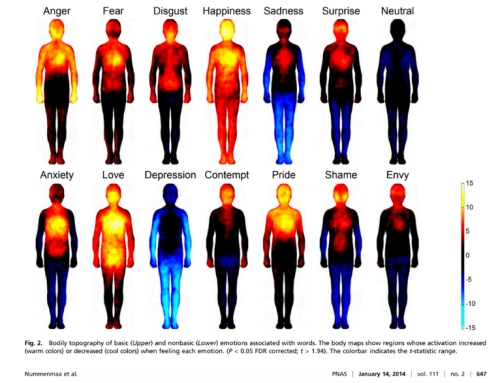Listening to the emotions we often avoid
Some emotions are easy to welcome. Joy. Gratitude. Calm. These feelings tend to lift us and connect us with others. Yet there are others, the ones we sometimes try to push away, that also have something valuable to say. Remember, all emotions are data, they are information and they are trying to tell us something.
Emotions like envy, guilt, boredom, and overwhelm are often misunderstood. They can feel uncomfortable, and it is easy to label them as “bad.” Still, these emotions are part of being human. They hold useful messages- if we are willing to listen.
What are these emotions trying to tell us?
Rather than trying to fix or avoid certain feelings, we can start to view them as data. Here are a few examples:
- Envy might be pointing to something we want or value. It can be a reminder to move toward what matters to us
- Guilt often shows up when our actions do not align with our values. That feeling can guide us to repair or reconnect
- Boredom may signal a lack of challenge, or a desire for something more meaningful
- Confusion can be a sign that learning or growth is trying to take place. It can feel frustrating in the moment, yet it often leads to insight
Rather than judging these emotions, we can ask: What is this feeling trying to show me?
When emotions feel heavy
Some emotions feel more intense. Sadness. Anxiety. Resentment. Grief. They often surface when life is hard, when something meaningful is lost, or when we feel stuck or overwhelmed.
These emotions are not problems to fix – they are part of the human experience. One helpful step is to name what is present. Saying to ourselves “I feel anxious” or “I feel hurt” can bring clarity and a sense of grounding.
In fact, neuroscience research by Matt Lieberman shows that when we label emotions, it activates the right ventrolateral prefrontal cortex (rVLPFC), which plays a role in regulating emotional responses. This activity reduces the intensity of the amygdala, the part of the brain responsible for triggering emotional reactions – creating a seesaw effect that calms the nervous system.
Another powerful practice is simply acknowledging the emotion without judgement. That might sound like, “This is hard right now,” or “It makes sense that I feel this way.” This kind of awareness is not weakness, it is a sign of emotional intelligence and self-leadership.
Letting emotions support us
When we tune in, emotions can help us take meaningful action.
- Feeling overwhelmed might be a signal to set a boundary.
- Resentment could mean something needs to change.
- Anxiety might invite us to pause, plan, or ask for support.
Instead of pushing emotions away, we can treat them like data. With practice, they become less overwhelming and more useful.
Creating more of what feels good
While it is important to work with the difficult emotions, we also have the opportunity to strengthen the positive ones. Gratitude, inspiration, calm, and hope. These feelings help us broaden our perspective and build our resources (Fredrickson, 1998).
This might look like:
- Noticing small moments of joy throughout the day
- Saying thank you more frequently
- Spending time in nature, or doing something that brings a sense of wonder
- Reflecting on what really matters, and aligning our actions with that
- Being mindful making a cup of tea
These simple actions help us feel more grounded, connected, and engaged.
A gentle reminder
You do not need to feel ‘happy’ all the time to be doing well. Emotional intelligence is about perceiving, connecting, understanding and managing emotions. Using them intelligently. Listening. Learning. Responding with care.
Every emotion has something to offer. Even the uncomfortable ones can become allies when we are open, curious, and kind to ourselves in the process.
Explore the tools that help us understand emotion
Building emotional vocabulary takes time, and the right tools can make it easier. The Emotions Cards are a simple and practical way to explore and name how you feel. With over 150 emotion words, they can support reflection, journaling, coaching, or team conversations.
If you are interested in a deeper understanding of how you perceive, express, and manage emotions, the MSCEIT Emotional Intelligence Assessment offers a research-based way to explore your emotional intelligence, along with a personalised debrief to help you apply it in daily life.
Stay tuned, as we explore how the brain processes emotions, and how we can strengthen our capacity to self-regulate and thrive in our next blog.
Explore how our science-backed courses and tools can support you or your team to flourish. Whether you’re starting your journey or deepening your expertise,
Langley Group is here to help you thrive.
👉 Discover our upcoming programmes
📩 Subscribe to our newsletter for practical tips and the latest research
🔗 Contact us to talk about what’s possible for you or your organisation
Let’s create positive change – together.









